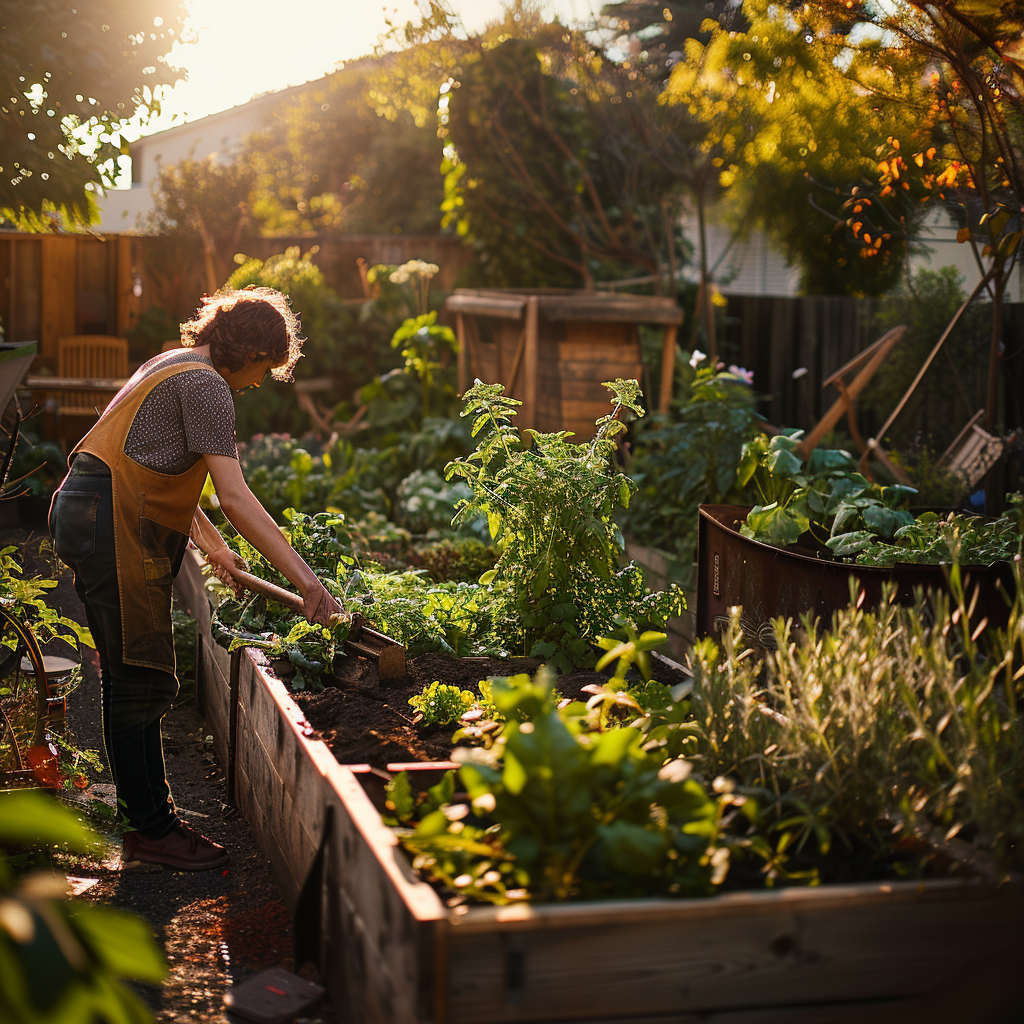1. Why Organic Gardening? A Quick Overview
Before diving into tips, let’s talk about why organic gardening is worth the effort. Organic gardening avoids harmful chemicals, making it better for the environment, your health, and the taste of your produce.
-
No pesticides or synthetic fertilizers: Organic gardening focuses on natural pest control methods and uses compost or natural fertilizers to boost plant health.
-
Healthier soil: By avoiding chemical inputs, organic gardeners help build healthier, nutrient-rich soil that benefits not just the plants, but the entire ecosystem.
2. Start Small: Choose the Right Plants for Your Space
When growing an organic garden in a small space, it’s important to be selective about the plants you choose. You want crops that maximize your space without overwhelming it.
-
Herbs and salad greens: Herbs like basil, thyme, and cilantro, along with leafy greens like spinach and lettuce, thrive in small pots and are perfect for compact spaces. These plants don’t require a lot of room to grow and can even be harvested multiple times throughout the season.
-
Dwarf varieties of fruits and vegetables: Look for dwarf or compact varieties of plants like tomatoes, peppers, or cucumbers. These are specially bred to grow well in containers or small gardens.
-
Vertical gardening: If you’re really short on space, consider growing plants vertically. Using trellises, hanging baskets, or wall-mounted planters allows you to grow more without taking up extra floor space.
3. Container Gardening: The Easiest Way to Grow in Small Spaces
Container gardening is one of the most effective ways to grow an organic garden in small areas. It’s perfect for patios, balconies, and even windowsills. Here are a few key tips to get started:
-
Choose the right containers: When selecting pots, ensure they’re large enough for the plants’ root systems. Containers should also have good drainage holes to prevent waterlogging, which can harm the plants.
-
Use organic potting soil: Organic potting mixes are free of synthetic chemicals and provide the necessary nutrients for your plants to thrive. Look for soil that’s rich in compost and other natural fertilizers.
-
Rotate your crops: Even in small spaces, rotating crops each season is essential to prevent soil depletion and reduce the risk of pests. Consider switching between leafy greens and root vegetables from one season to the next.
4. Maximize Sunlight: Location, Location, Location
Sunlight is one of the most critical factors in growing a successful organic garden, especially in a small space where light may be limited. Here’s how to make the most of your available sunlight:
-
Position for maximum sun: Most vegetables need at least six hours of direct sunlight per day, so place your garden in the sunniest spot available. If you’re working with a balcony or windowsill, be sure to rotate your plants regularly to ensure they all receive adequate light.
-
Use reflective surfaces: If your space lacks sufficient sunlight, consider using reflective surfaces like mirrors or light-colored walls to bounce more light onto your plants.
-
Supplement with grow lights: If natural light is scarce, especially indoors, consider using energy-efficient grow lights. LED grow lights are ideal for small spaces and can provide the necessary light spectrum to encourage growth.
5. Natural Fertilizers and Pest Control: Keep It Organic
Keeping your garden organic means avoiding synthetic fertilizers and pesticides. Instead, opt for natural solutions to feed your plants and manage pests.
-
Compost and organic fertilizers: Use compost or organic fertilizers like fish emulsion or worm castings to enrich your soil naturally. If you don’t have space for a full compost bin, consider a small worm composting system (vermiculture), which is perfect for urban gardeners.
-
Natural pest control: To manage pests without chemicals, introduce beneficial insects like ladybugs or use homemade remedies like neem oil or a mixture of water and mild soap to deter aphids, mites, and other common pests.
6. Watering Wisely: Conserve Water While Nourishing Your Plants
Watering can be tricky in small spaces, especially in containers where soil tends to dry out faster. However, there are a few strategies to keep your plants hydrated without wasting water:
-
Water early in the day: Watering in the morning reduces evaporation and gives plants time to absorb moisture before the heat of the day sets in.
-
Mulch your plants: Adding a layer of organic mulch (like straw or shredded leaves) on top of the soil helps retain moisture and regulate soil temperature, which is crucial for container gardening.
-
Self-watering containers: These containers have a reservoir at the bottom that allows plants to draw up water as needed, reducing the risk of over- or under-watering.
Conclusion: A Green Oasis in Any Space
Growing an organic garden in a small space may seem challenging at first, but with the right approach, you can enjoy a bounty of fresh, organic produce no matter how limited your space is. By starting with the right plants, maximizing sunlight, and using sustainable gardening practices like composting and natural pest control, you can cultivate a vibrant garden that’s good for both you and the environment.












